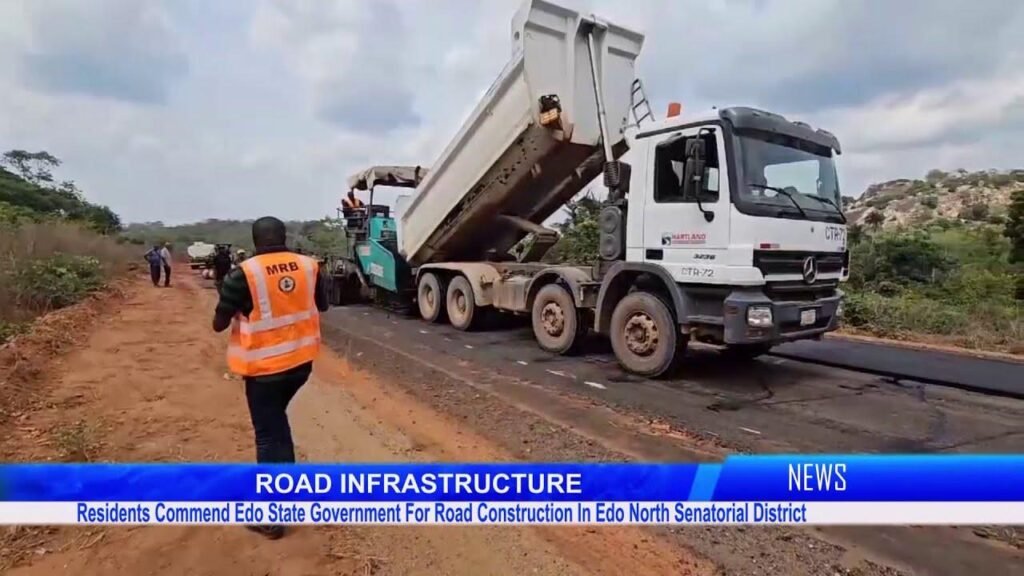Edo State Sets New Pace: Concrete Technology Emerges in Road Construction
A lorry rumbles along a broad avenue in Benin City, its tires crossing freshly laid pavement—light colored, sharply defined. Edo State has taken a notable plunge, advocating for concrete as the go-to material across its evolving road network. In pivoting from bitumen-based roads to cementitious surfaces, Edo reflects both regional ambition and nods toward global discourse about infrastructure longevity.
Concrete Roads: The Unexpected Candidate
Long regarded as the domain of expressways or airport runways, concrete technology now enters urban and semi-urban landscapes with renewed vigor. For years bituminous (or asphalt) surfaces dominated because their initial installation costs were familiar territory; contractors found them swift to execute while fitting snugly within procurement cycles.
However, increased vehicular loads—a byproduct of swelling industries—have exposed cracks not only in roadbeds but embedded in planning philosophies themselves. Bituminous layers suffer swifter decline under weight and climatic variation. By contrast, studies indicate that well-designed concrete pavements exhibit negligible wear due to abrasion—even when subjected to punishing monsoon cycles or diesel-stained commuter patterns. When set appropriately on cross slopes and embankments tailored for local geology (which requires geological acumen many overlook), these rigid surfaces resist deformation after heavy rains quite remarkably.
Examining Short-Range Payoffs
With recent projects commissioned by Edo’s Ministry of Infrastructure making headlines for their subdued maintenance schedules, daily users observe how reflective grey slabs contribute marginally less heat during midday peaks than adjacent dark-tarred sections do—mitigating urban heat island effects ever so slightly but measurably all the same. At first glance this could appear trivial until traffic engineers highlight reduced air conditioning demand among public transport vehicles idling at stops.
Fuel efficiency merits acknowledgment here too: buses plying over such pavements report 15–20% reduced fuel consumption compared with asphalt alternatives—a statistic echoing broader trends observed worldwide. Arguments arise occasionally over the degree of financial impact this introduces at scale; even so—not every analyst concurs these numbers will hold steady if truck weights trend heavier next decade.
Laborers active on the ground offer a pragmatic dimension often omitted from policy missives—the random relocation of construction teams thanks to mechanized slipform pavers disrupts employment predictability yet also offers new upskilling routes for locals accustomed only to tarring worksites before noon rains arrive without warning.
Durability That Encompasses Decades
Highways conceived today must anticipate occupant demands forty years away—or more—unless authorities are preparing budgets swollen by constant resurfacing calls which few treasuries can truly endure anymore. Rigid pavement types like continuously reinforced concrete crank service life projections upward impressively while sidestepping rutting (those insidious wheel indentations). Such characteristics prove crucial where agricultural marketing corridors now double as high-capacity haulage routes overnight almost unannounced.
Ordinarily overlooked facets include accident rates correlated with surface slip-resistance; polished aggregate leads sometimes undermine these metrics unintentionally if oversight lapses during batch mixing stages. Still—they recover integrity quickly under routine brushing regimens mandated within current specifications.
Concrete’s capacity for repurposing industrial waste takes on extra relevance amid Nigeria’s push toward environmental stewardship goals—a direction that solves multiple infrastructural riddles using one standardized matrix rather than disparate patchwork fixes introduced whenever annual floods reoccur unpredictably.
Innovative Detours: Smart Roads & Recycled Content
Technological churn doesn’t always await approval from national committees before shaping local responses. Smart-road pillars quietly sprout beside custom sidewalks threaded through Benin Tech District; engineers discuss embedding EV charging loops into carriageway matrices not solely out of convenience but also forming testbeds ripe for collaboration between private innovators and state agencies seeking competitive advantages over peer entities elsewhere.
Meanwhile recycling initiatives promote using crushed construction debris or surplus fly ash directly into highway mixes thereby lowering embodied emissions per lane-kilometer paved—a term less frequent outside specialist gatherings yet rapidly entering mainstream municipal vocabulary courtesy Edo’s outreach programs championed recently at forum events bridging academia with concerned residents’ associations.
It would be remiss not mentioning another logic strand sometimes paradoxically voiced inside policy roundtables—that bitumen remains relevant especially where topographic constraints dictate design flexibility hard won by trial rather than formulaic approach alone; some officials seem convinced you cannot substitute everything everywhere despite overarching endorsements otherwise floated earlier in deliberations.
Maintenance Uncertainties Meet Financial Realities
Here matters grow tangential though no less consequential: While lower recurrent expenditures inspire applause among budget officers overseeing upcoming fiscal rounds, unforeseen variables like shifting groundwater tables prompt periodic recalibration regarding joint performance expectations against subsurface movements strangely accelerating near certain river embankments even within last dry season alone—geotechnical unpredictability masquerading briefly as managerial oversight possibly fosters silent knowledge transfer across surveyor teams adjusting chalk lines overnight so quietly it fails official notice entirely some weeks later…
In winding back toward immediate implications—mirroring neither perfect conclusion nor total closure—the story belongs partly to drivers rediscovering smoother morning commutes over unexpectedly resilient corridors just beyond colloquial market districts disrupted temporarily during culvert upgrades totally unrelated except through shared utility poles dotting roadside verges already earmarked for next wave innovations few anticipated when rollout commenced early last year actually slightly behind initial timetable nobody recalls exactly now because tangible progress eclipsed procedural memory just long enough that novelty settled comfortably into routine expectation instead.

